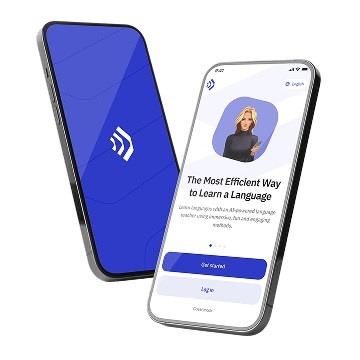Learning Italian in Colombia offers a unique opportunity for language learners. With a growing interest in European languages, many Colombians and expatriates choose to add Italian to their multilingual skills. Italy’s rich culture, history, and economic significance make Italian a valuable language to learn, and doing so in Colombia combines the charm of Latin American culture with European linguistic flair.
Cultural Enrichment: Italy’s vast influence in the arts, fashion, and gastronomy can enrich personal and professional life. Learning Italian in Colombia can provide deeper insights into Italian culture.
Professional Opportunities: Italy has strong trade links with many countries, including Colombia. Proficiency in Italian can open doors in fields like fashion, culinary arts, and engineering.
Educational Prospects: Italy offers numerous scholarships and opportunities to international students. Knowledge of Italian can be a prerequisite or a significant advantage.
Personal Satisfaction: Learning a new language is a fulfilling endeavor that challenges the mind and enhances cognitive skills.
Best Italian Language Programs in Colombia
Colombia boasts several reputable institutions offering high-quality Italian language courses. These programs cater to various levels from beginner to advanced and are designed to meet different learning needs and preferences.
Italian Cultural Institute in Bogotá: As part of the Italian Embassy, it promotes Italian language and culture and offers a variety of Italian language courses, including special courses like Italian for business and Italian cinema.
Universities with Italian Studies: Many Colombian universities such as Universidad de los Andes and Universidad Nacional offer Italian language courses as part of their modern languages departments.
Private Language Schools: Schools like Berlitz and Nueva Lengua offer Italian classes in major cities. These schools often provide flexible schedules and intensive courses.
Online Italian Courses: For those who prefer learning from the comfort of their homes, there are online platforms offering live sessions with native Italian speakers.
Integration of Technology in Learning Italian
Technological advancements have made learning Italian in Colombia more accessible and interactive. Language learning apps, online courses, and virtual reality (VR) environments provide immersive learning experiences that can significantly enhance language proficiency.
Language Learning Apps: Apps like Duolingo, Babbel, and Rosetta Stone offer Italian language courses that are handy for on-the-go learning.
Online Tutoring: Websites like iTalki and Verbling connect learners with Italian tutors for personalized learning experiences.
Virtual Reality: VR platforms like MondlyVR create real-life scenarios that help in practicing Italian in simulated environments, making learning both fun and effective.
Podcasts and Webinars: These are great for auditory learners. Podcasts like Coffee Break Italian and webinars hosted by Italian language experts can aid in improving listening and comprehension skills.
Community and Cultural Engagement
Engaging with the Italian community and participating in cultural events can enhance the language learning experience. Colombia’s major cities often host Italian festivals, film screenings, and culinary weeks that provide immersive Italian cultural experiences.
Italian Festivals: Events such as the Italian Film Festival in Bogotá allow language learners to experience Italian culture and practice language skills with native speakers.
Italian Restaurants and Cafés: Regular visits to places where Italian is spoken can provide practical language practice in a natural setting.
Language Exchange Meetups: Participating in Italian-Spanish language exchange meetups can offer conversational practice and cultural exchange.
Italian Libraries and Bookstores: Resources like books, magazines, and newspapers in Italian can be found in cultural institutes and international bookstores.
Challenges and Solutions in Learning Italian in Colombia
While learning Italian in Colombia is an exciting prospect, learners may face challenges such as limited exposure to native speakers and dialect variations. However, solutions exist to overcome these obstacles.
Limited Native Speaker Interaction: Engaging with Italian expatriates or using language exchange platforms can increase exposure to native Italian speech.
Dialect Variations: Focusing on Standard Italian in academic settings can provide a solid foundation before exploring regional dialects.
Motivation and Consistency: Setting clear goals and regular practice schedules can help maintain motivation and consistency in learning.
Accessibility of Resources: Utilizing online resources and community libraries can mitigate the issue of finding Italian learning materials.
Conclusion
Learning Italian in Colombia is not just about mastering a foreign language; it’s about embracing a culture that has influenced various aspects of global civilization. With the right resources, community engagement, and technological support, Colombian learners can effectively and enjoyably navigate their journey to fluency in Italian. Whether for personal enrichment, professional advancement, or academic purposes, the pursuit of Italian language skills in Colombia promises a rewarding and enriching experience.





